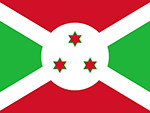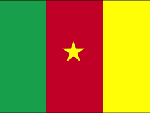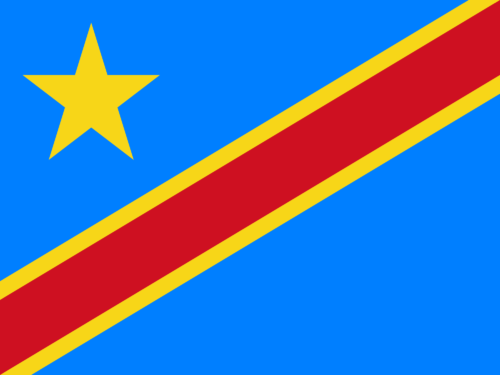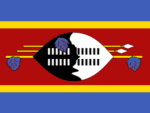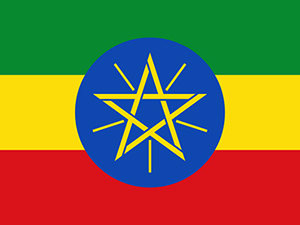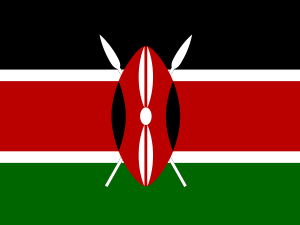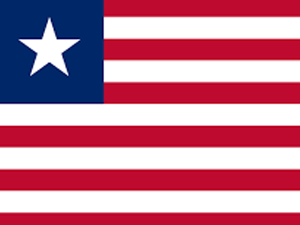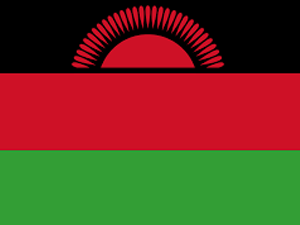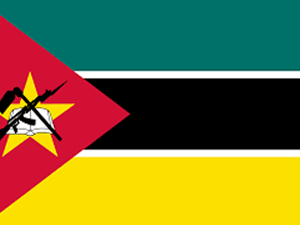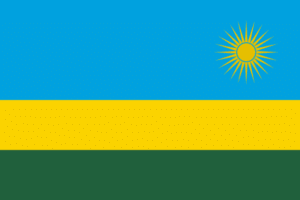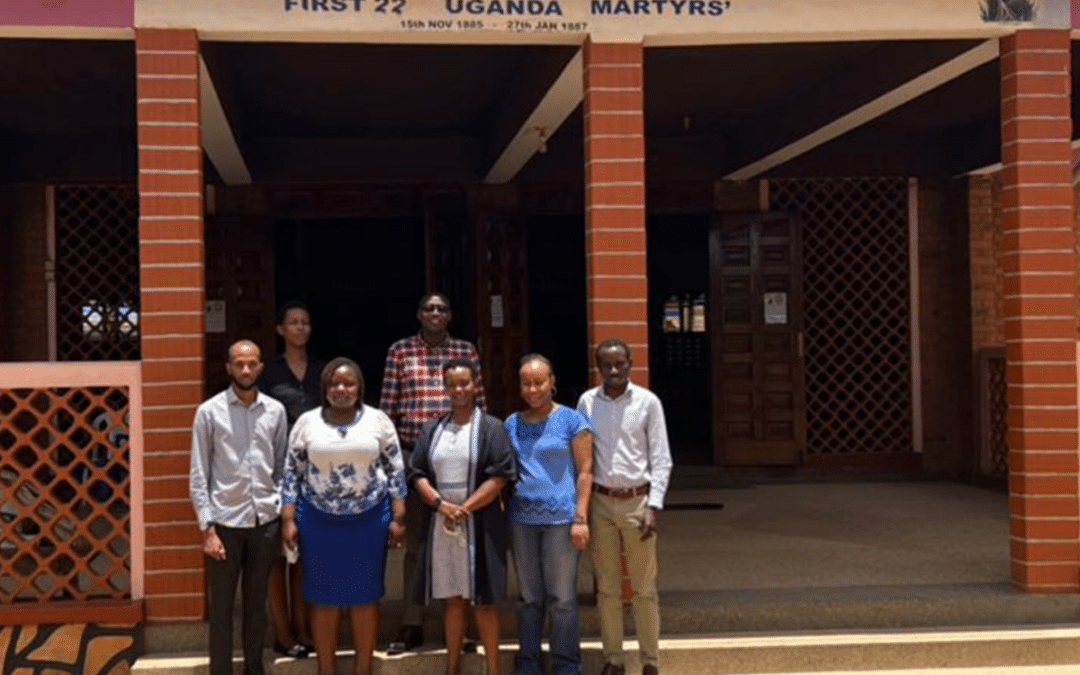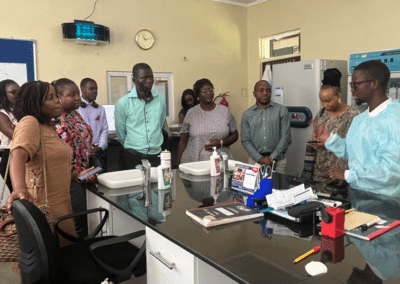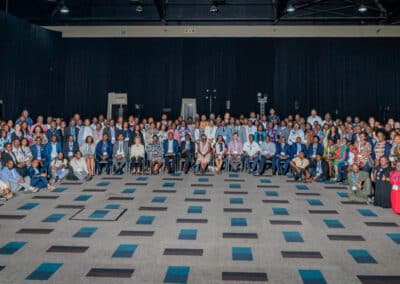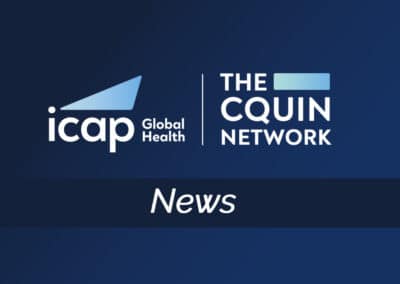Rwanda is planning to scale up its community-based differentiated service delivery (DSD) model and to start dispensing antiretroviral therapy (ART) in community settings. In September 2022, CQUIN supported a five-member delegation from Rwanda to visit Uganda to learn more about community ART delivery, community pharmacy models, and key population-focused differentiated ART (DART) models.
“What Rwanda currently considers as a community-based DSD model is really a peer education system, which the Rwanda Network of People living with HIV, RRP+, coordinates in collaboration with the Ministry of Health,” said Brian Kwizera, MBBS, MPH, DSD coordinator for MOH Rwanda, and a member of the visiting delegation to Uganda. “Though our community-based system allows people living with HIV to access psychosocial support, adherence counseling, and other services from an experienced and trained recipient of care, ART dispensation is mostly restricted to health facilities. This visit was designed to ascertain how Rwanda can initiate and dispense ART within this community system,” Dr. Kwizera added.
Other participants from Rwanda included the HIV Care and Treatment Director for the Rwanda Biomedical Center (RBC), the Clinical Services Coordinator for PEPFAR-supported sites at the Rwanda Ministry of Health (MOH), the Executive Secretary for RRP+, and the Clinical Mentor Coordinator for the Rwanda MOH.
Visit learning objectives included the design and implementation of community models, addressing HIV stigma and discrimination, DSD for key population groups, community monitoring and evaluation (M&E) tools, quality assurance and standards in community models, key population access to PrEP services, and the establishment and functionality of safe spaces for key population groups in Uganda.
Uganda’s Ministry of Health hosted visits to five health facilities supported by implementing partner organizations in Kampala for the visiting delegation to observe community DSD implementation and achieve the objectives of the visit.
“The learning exchange exceeded our expectations,” said Simeon Tuyishime, MD, MPH, HIV Care and Treatment director, RBC. “We plan to set up a key populations program for treatment and establish a DSD desk to improve clinical outcomes for key populations in Rwanda. In addition, we appreciated Uganda’s rights-based approach to service provision for key populations and the Uganda MOH’s partnership with implementing partners and stakeholders.”
The visiting delegation intends to recommend the inclusion of community ART distribution and community pharmacy dispensing in Rwanda’s DSD treatment guidelines.


